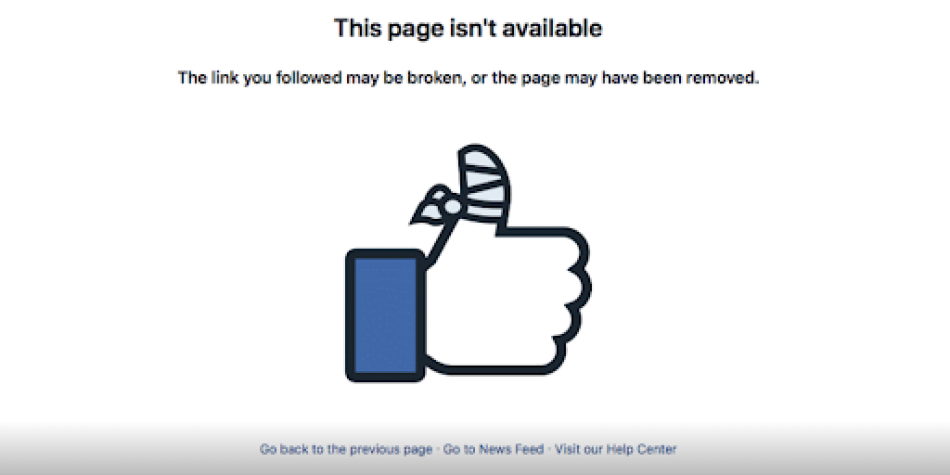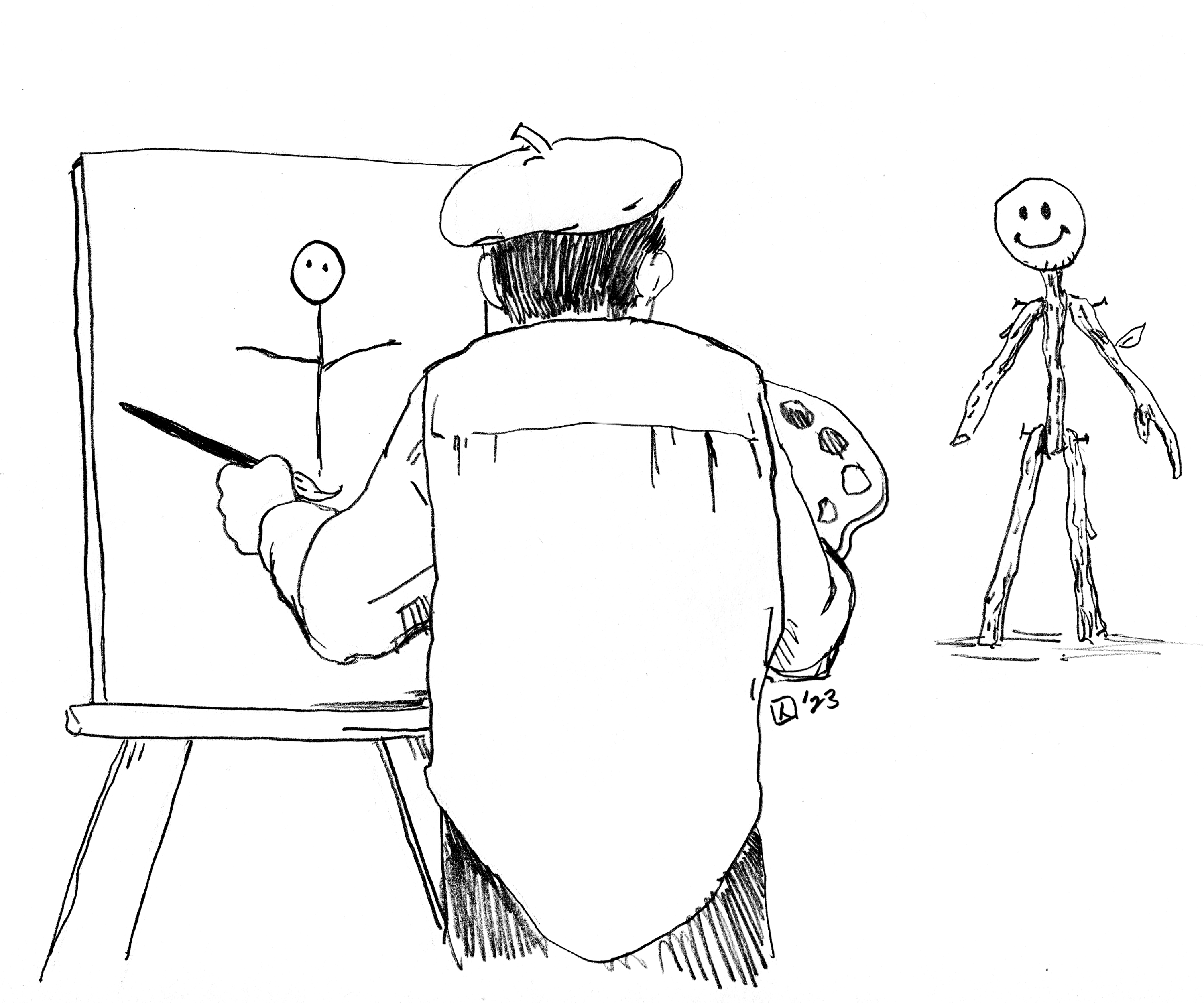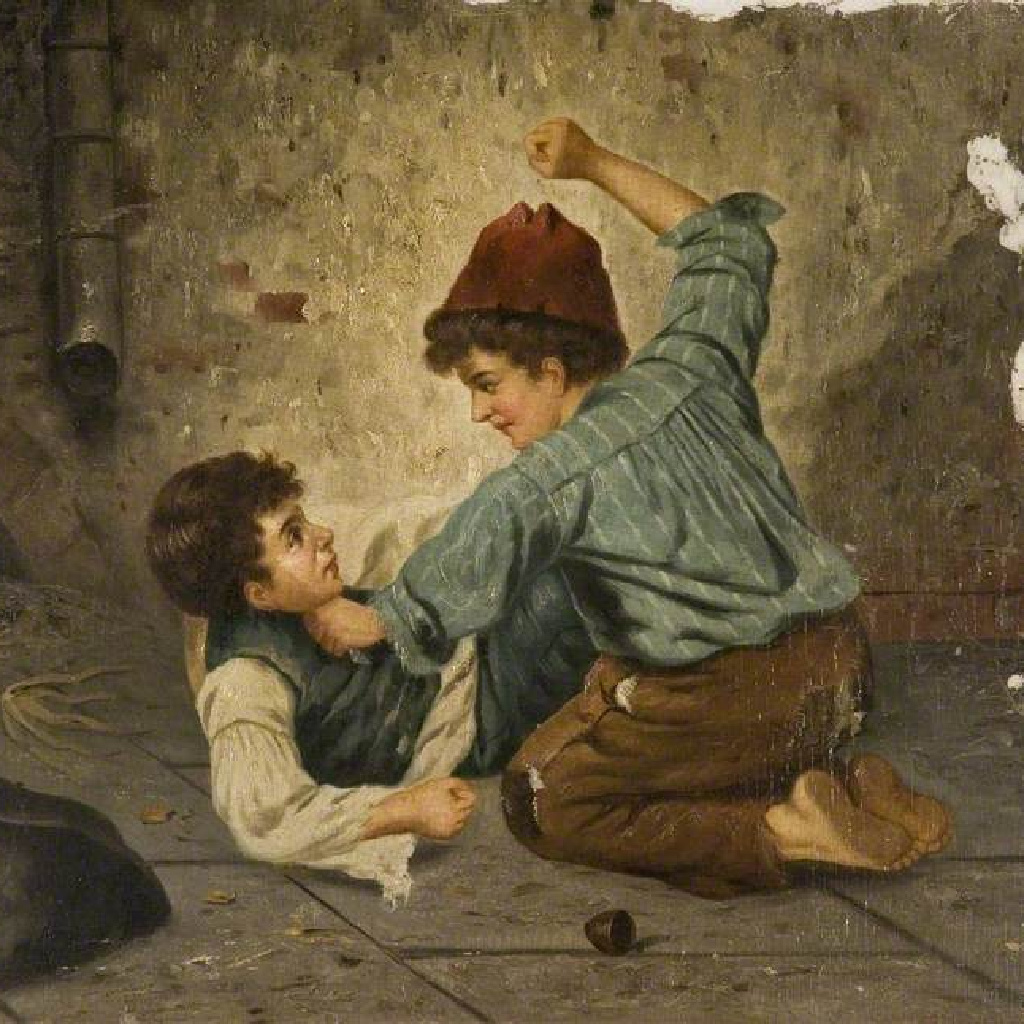In 2004, something called “The Facebook” was born—seven years after its older siblings that no one remembers anymore—with its creators little aware of their destiny to one day rule the (un)civilized world. Two years later, “Twttr” was founded—and four years later in 2010, “Instagram.”
As the unforeseen power of these platforms grew over the subsequent decade, the people behind them had to make some hard decisions on what (and who) was allowed to engage on their platforms. However much some may be tempted to tell a simple partisan story of conservative targeting online, the actual history of social media bans suggests a far more complicated tale.
Another simple story that has become popular is lamenting the unremitting evils of “Big Tech.” I have written against the knee-jerk, popular tendency among people of faith to turn their backs on social media—agreeing with those who believe there is still much good that can be done online, as long as good-hearted people remain (“Stop Deleting Your Facebook”). While yes, these companies study how to engage users, and keep them engaged, that’s what all tech companies do. As someone who works at a tech company, I’m also aware of the importance of being able to set the terms of participation in the community you operate.
All that being said, Spiderman’s Uncle Ben was right: “With great power comes great responsibility.” And it’s true that these mega-powerful organizations deserve all the scrutiny they get and whatever accountability we can provide. Heaven knows, for all our best interest, we all need them to stay as healthy as possible in their current function as what two Utah state senators recently called “the new public square for discourse and engagement.”
As part of this analysis, I studied the running list of 129 documented permanent Twitter suspensions that have happened from 2010 – 2020—ignoring, for this purpose, any temporary bans such as the infamous hold on the New York Post right before the recent election for alleging collusion between Burisma and Joe Biden. (Candace Owens & Charlie Kirk also had temporary bans in 2020 after speaking out against lock-down orders and mail-in-ballots respectively).
I consolidate this abbreviated history into five phases. Although dates are given for each phase, their focus is primarily thematic—with more recent examples also referenced as part of the categories. The more well-known phases passed over more quickly, compared with the bigger surprises and head-scratchers—with the first phase pretty no-brainer to most anyone.
1. The We Better At Least Ban the Terrorists Phase (Birth to 2016). As each of these social media platforms got off the ground, they all did the one thing everyone expected them to do: going after the Most Obvious Bad Guys. That includes nearly 400K terrorist-linked accounts suspended on Twitter alone through 2016 (and hundreds of thousands more in the years since), including official and ISIL-related accounts and others associated with the al-Qassam Brigades Military wing of Hamas. The same bans were slapped on people making neo-Nazi posts, the American Nazi Party American Nazis, and ultranationalist, fascist groups in Europe.
Although clearly not meriting the label “terrorists,” also included in this phase are others banned for making serious threats of hurting someone—such as Steve Bannon’s infamous call for Anthony Fauci to be beheaded, and Daniella Stella’s suggestion that Rep. Ilhan Omar be “hanged” if she turned out to be a traitor to the U.S. Or people who took actions that could have led to obvious harm, such as the individual who sent an epileptogenic GIF to a journalist with epilepsy, and others that did clear harm—including accounts spreading propaganda against Rohingya people. Likewise, others who engaged in sustained, obviously aggressive campaigns of harassment against someone else online had access removed, including Rapper Azealia Banks and Milo Yiannopoulos and more recently hedge fund manager Martin Shkreli and another individual targeting Taylor Swift.
Others who engage in obvious criminal conduct such as documented hackers are also included among these permanent bans. Not much controversy there.
2. The For the Good of America, We Better Do More Phase (2016-2017). After Donald Trump’s election, we all witnessed the heightened pressure social media companies came under during the investigation over Russian interference in the election. These efforts to “fight disinformation” and “fake news” prompted dramatic expansions in social media efforts to clamp down on information deemed false.
In many cases, these were obvious right calls—from the estimated 70 million automated, troll, and fake accounts deleted on Twitter by 2018, to “Jenna Abrams” and thousands of other fictitious persons operated by a Russian troll factory pretending to be alt-right bloggers. Domestically, this included bans on clear fraudsters like Jacob Wohl who created fake accounts after boasting he intended to manipulate the 2020 United States presidential election results in a USA Today interview. And internationally, tens of thousands of accounts were also deleted after being linked to propaganda and disinformation supportive of governments in China, Russia, Turkey, Saudi Arabia, Hungry, and Venezuela—including nearly 200K accounts in China, many of which were part of an intentional influence campaign targeting the protest movement in Hong Kong.
In other cases, this push led to bans across platforms largely understandable to most Americans —from Alex Jones and Infowars and ProudBoys to White Nationalist Richard Spencer, to former KKK Grand Wizard David Duke and Louis Farrakhan, leader of the Nation of Islam. Although primarily citing violations of platform hate speech policies (anti-Semitic, anti-Muslim, white supremacist, racist or homophobic), this is the first time you see people being punished for promotion of conspiracy theories—including Alex Jones’ claims about Sandy Hook elementary school murders in 2012 being a “false flag operation” by gun control activists—and other conspiracy theories from incendiary commentators Laura Loomer and Stefan Molyneux, each also permanently banned. None of this seemed all that controversial either, to most.
3. The We Better Do EVEN MORE to Combat “Misinformation” Phase (Starting June 2018). Two years after the pressure campaign had escalated against social media for their part in the recent election, Facebook founder Mark Zuckerberg publicly vowed to crack down on fake news in January of 2018. Several months later, between June 5 and 13, the following major Facebook pages were deleted or unpublished: Natural Health Warriors (140K followers) Organic Wellness (600K followers); Healthy Lifestyle (1.4M followers); Just Natural Medicine (1M followers); Natural Cures Not Medicine (2.3M followers); Organic Health (230K followers); Natural Cures From Food (120K followers); Health & Alternative Medicine (550K followers); Healthy Food House (3.4M followers); Health Awareness (2.5M followers); Healthy Life And Food (350K followers); Health and Healthy Living (450K followers); Health & Alternative Medicine (550K followers); Healthy Living Motivation (644K followers); Natural Medicine Corner (411K followers); Organic Health Team (490K followers); Healthy Alternative Medicine (140K followers); Healthy Organic Life (25K followers); Healthy Lifestyle (55K followers); Nutrition Facts and Analysis (170K followers); Healthy Living (1.8M followers); Natural Healthy Team (190K followers).
This same week, these Facebook pages were also deleted: Collectively Conscious (915K followers); Conscious Life News (1.1M follower); Learning the Truth (1M followers); Deeper Perspectives (32K followers); Meditation Masters (2.3M followers); People’s Awakening (3.6M followers).
The former admin of Collectively Conscious (which covered alternative health, spirituality, science, and “information that isn’t covered on mainstream media networks”) was quoted in an interview describing how he spent six years building the page, only to have it suddenly erased: “People are losing their entire livelihoods here and also in many cases, their passion/purpose in this world,” wrote this individual. “Our society is losing media companies and activist organizations that are trying to keep people informed about important issues and life-saving information regarding their health.”
Anyone else confused why these groups were targeted? Despite years of work, these pages are typically closed down without notice and replaced with a ‘this page doesn’t exist’ notice. Even after multiple attempts at contacting Facebook, most page administrators were given little explanation for the permanent bans, no illustrations of offending posts, and no opportunities given to alter posting behavior and appeal the decision. They were simply told they violated the terms of service, and that the decision to close their account was final.
Compared with banning pages associated with criminal activity, violence, and harassment, it’s confusing, to say the least, to understand why these kinds of pages were targeted. As one author said, “One can argue that Facebook has every right to delete pages of hateful, divisive and inflammatory content, but it’s difficult to square that approach with a page dedicated to mediation, organic food, or wildlife.”
This same author suggested that the purge “appears aimed at alternative news sites that specialize in wellness, nutrition, lifestyle balance, meditation, and spirituality.” Another commentator proposed that what these accounts have in common is that they “contain views that oppose mainstream narratives.” Citing reporting that CNN and NBC alums now work for Facebook, this individual went on to suggest that under the guise of being “tasked with ‘revitalizing journalism’ on the platform and weeding out ‘misinformation.’…I think they’re targeting all independent media pages.”
Of course, many others—especially those suspicious of natural or alternative healing—may not see any of this as a problem, instead viewing the deletions as a welcome “crackdown on pseudoscience, quackery, and fringe medicine.”
Yet for those with honest questions about popular, prevailing views of health matters, in particular, all this looks very different and quite frightening. As one author summarized the worry, “anyone who shares information that does not support the established mainstream narratives—regardless of the topic! If you don’t toe the [dominant] line then you’re out!”
4. The For the Health of All, We Better Go Hard at Dissenters from Coronavirus Orthodoxy Phase (especially starting in May 2020). All this brings us, two years later, to Facebook’s announcement that it had banned domains for promoting the “Plandemic” video (which broached the possibility of an intentional release of COVID-19 in hopes of doing harm). In the months afterward, in addition to putting an estimated 98 million warnings on posts sharing what they determined was “misinformation,” Facebook and Instagram took down 7 million posts between April and June alone. By the end of the year, under pressure from external groups focused on advancing public health policy, Facebook removed other large pages that had raised concerns with the prevailing coronavirus narrative.
Similarly, Chinese virologist Li-Meng Yan was permanently suspended on Twitter for claiming SARS-CoV-2 was made in a laboratory. Others were likewise banned for promoting what official regulative bodies or specific fact-checkers had deemed as COVID-19 “misinformation” (the word we now use for anything that deviates from the prevailing, orthodox narrative of a particular issue). These efforts to crackdown on divergent views are ramping up in the new year. All this coincides with YouTube’s new policy for not tolerating anything not in line with the World Health Organization.
All this, of course, is largely celebrated in mainstream reporting—with ongoing news stories on the urgent work to “combat coronavirus misinformation.” Any question at all may be suspect of undermining public trust and our overall collective health. And after all, how could you not crackdown on something that dangerous?
Which brings us to the present fears over a legitimate conservative crackdown in the works.
5. The We Better Do Something About Conservatives Causing Pre and Post Election Trouble Phase (pre-election and spiking in January 2020). Over the four years of the Trump administration, media attention to any extremist threat from the right spiked considerably. In the months leading up to the election, no doubt related to fears about their platforms being again blamed for influencing the U.S. election, Facebook and Twitter took additional action. For instance, approximately 7,000 QAnon-related accounts were banned on Twitter permanently, saying they have “the potential to lead to offline harm.” Then, coinciding with the January 6 violence at the capitol, social media platforms engaged in a wider banning effort—all in the name of “protecting democracy” and “protecting the constitution,” as well as “preventing a coup.”
In addition to well-known bans of President Trump himself, Sidney Powell and Michael Flynn, permanent bans were issues for those involved in the riots like Jake Angeli (Q Shaman) and the organizer of the Stop the Steal campaign, Ali Alexander, plus 70,000 more QAnon-related accounts. To some, this has seemed a frightening harbinger of a broader conservative crackdown anticipated with the new progressive corporate-political hegemony. And, indeed, almost daily there appears another well-known conservative celebrity or professor getting pressure to be fired for sharing their views. The widely-reported de-platforming of Parler in coordinated action across major platforms is also hard to explain in reference to the riot alone.
To others, however, much of this seems a fair and reasonable response to extremism that had gotten out of control. Many of these would point out that for every claim of conservatives being singled out, there are other explanations for bans taking place. For instance, the ban against the half-million strong WalkAway campaign encouraging liberals to leave the Democratic party has chagrined some conservatives. But their organizer, Brandon Straka, took part in the capitol riot. And banned conservative political cartoonist Ben Garrison also was vocal about his support for the riot.
So, is this a legitimate conservative crackdown, or more of a targeted QAnon Purge? And if so, should we truly be okay with that?
69% of Republicans surveyed (myself included) feel major technology companies generally support the views of liberals over conservatives. Yet most would agree that banning Trump lawyer L. Lin Wood for tweeting that Vice President Pence should be executed by firing squad for treason, is not the same as banning someone like Tucker Carlson just for expressing anger (which hasn’t happened…in fact, Twitter took action in 2018 against a group called Smash Racism making Carlson’s home addresses public).
Although I don’t agree with all the particulars of the New York University report, “The Unfounded Claim That Social Media Companies Censor Conservatives,” my own review jives with their conclusion that questions the evidence for a purely ideological purge of conservative content.
Predictably, that conclusion has been largely dismissed by right-wing commentators in partisan fashion. But why? Why not consider it? In that same report, Renée DiResta of the Stanford Internet Observatory is quoted as suggesting that bias-against-conservative allegations currently function as “a mass aggrievement narrative, deployed as a cudgel by politicians who use it cynically to rally their base.”
I don’t think that’s an unfair suggestion, and would hope we notice the tendency as conservatives to get swept up in rhetoric like this too quickly, at times. Pointing to a ban of 80 activist accounts associated with the far-left Occupy group, this same NYU report concludes, “Twitter doesn’t target conservatives or Republicans as such, but people who violate its rules by calling for violence, harassing others, or advocating hateful ideologies.”
What exactly is constituted by “hateful ideologies” of course, is another important question very relevant to this whole discussion. My own conclusion, after reviewing the chronological examples of many social media bans documented over the last 10 years, is that while there are clearly worrisome hints of ongoing (and intensifying) bias against conservatives on these platforms, fears of a widespread crackdown are (at least for now) premature. That doesn’t mean we shouldn’t anticipate them increasing, of course, or work to fight where this is heading. But if that’s really what conservatives like myself want, over-reacting (in a way that leads potential allies to dismiss our concerns) won’t help.
By comparison, it seems clear that a crackdown against anyone who disagrees with popular and prevailing narratives when it comes to health matters—especially those related to public health issues such as coronavirus or mass vaccination—are in full swing. And to the degree questions critics are raising are warranted, valuable, and liable to help move public discourse towards greater truth, you and I have a right to be concerned about this real-time, pervasive crackdown happening right now, everywhere you look.
Let’s talk more about that.

















